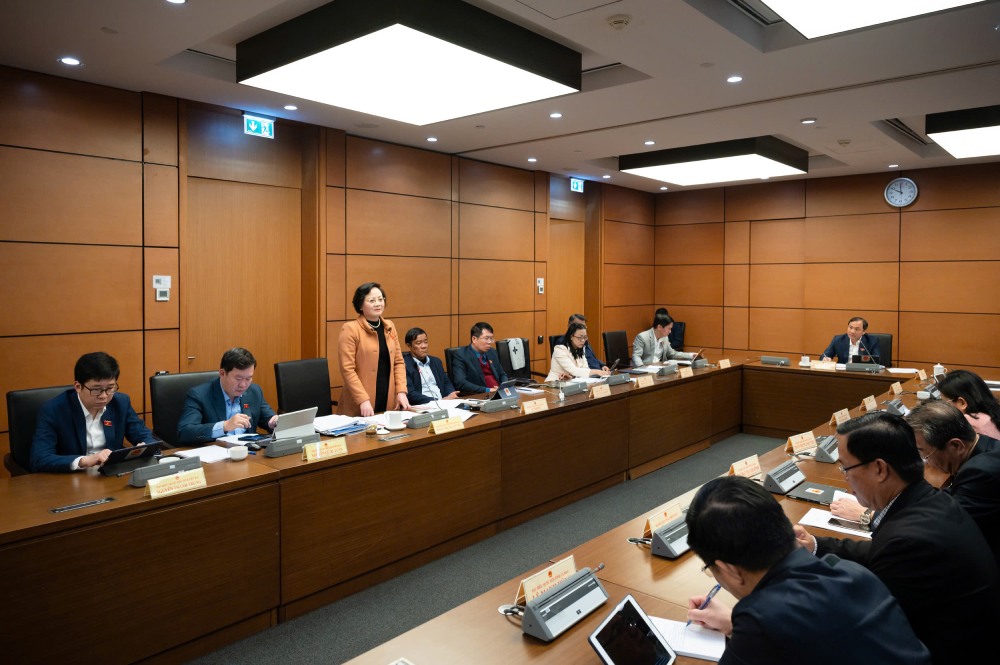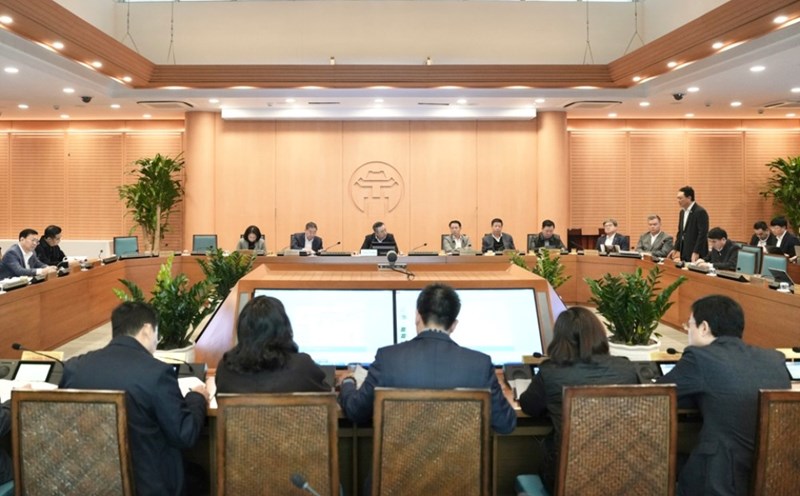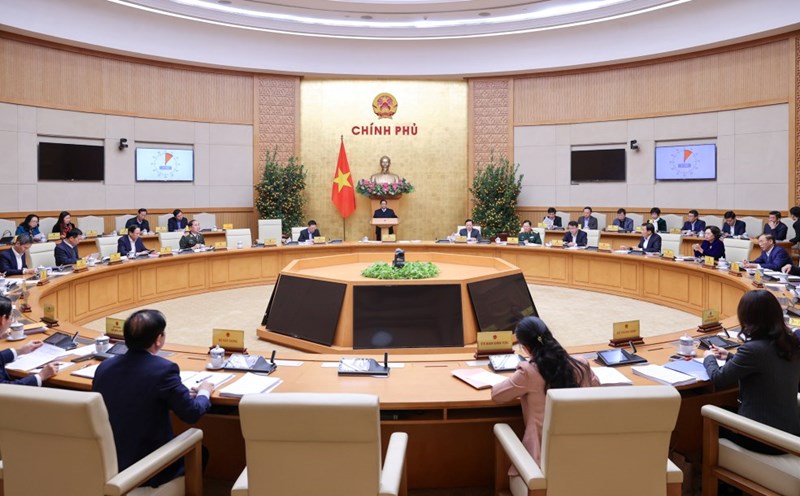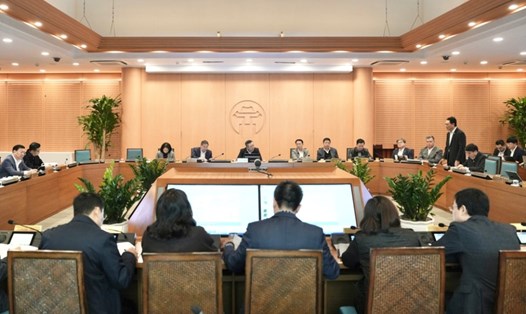Continuing the 9th extraordinary session, on February 13, National Assembly deputies discussed in groups: Draft Law on Government Organization (amended); Draft Law on Organization of Local Government (amended); Draft Resolution of the National Assembly regulating the handling of a number of issues related to the arrangement of the state apparatus.
Speaking, Minister of Home Affairs Pham Thi Thanh Tra stated that the two draft laws were developed in a very special and urgent context, associated with the arrangement and organization of a streamlined apparatus.
These two draft laws are of special significance, not only politically, socially and legally, but also historically, at a very important time for the country.
Minister Pham Thi Thanh Tra said that the two draft laws have many new points, but the biggest new point is the new point in the thinking of law making.
The Minister of Home Affairs stated that, in accordance with the direction of the Politburo, the General Secretary and the Chairman of the National Assembly, the law only regulates issues of general principles and fundamental issues.
From there, it creates conditions for ensuring the stability and value, sustainable vitality of the law, ensuring flexible management in practice of the State administrative system.
These are the two fundamental laws of the State administration. If we go into very specific things and do not provide general principles, then there will be no basis for other specialized laws to follow.

The second new point is that the draft law focuses on clearly defining the authority of the Government and local authorities.
"Thus, it clarifies the relationship between the Government as an executive body and the legislative and judicial bodies," said Minister Pham Thi Thanh Tra, adding that the drafting committee designed this content very clearly and distinctly so that there is no overlap or interference.
In particular, clearly identifying responsibilities so as not to push to the Government the responsibilities of the Government members.
Regarding decentralization, delegation of authority and authorization, this is the newest and most core issue of these two laws. In which, the Law on Government Organization is the original law, providing very clear principles in decentralization, delegation of authority and authorization.
"Proposing such principles so that later all specialized laws must follow to implement decentralization, delegation and authorization, clarifying the objects, subjects, scope and content at different levels," said the Minister.
At the same time, the law also stipulates a very important provision that ministers and heads of ministerial-level agencies must, based on this principle, comply with regulations on decentralization, delegation and authorization when drafting legal documents.
"We work all day and all night, even through Tet, only taking two days off on the 30th and 1st of Tet," the Minister said, clarifying that this is an extremely important legal basis and mechanism to resolve all problems of current specialized laws.
Ms. Tra said that when reviewing, there were 177 laws that very specifically stipulate the authority of Ministers and Heads of ministerial-level agencies, 152 laws that very specifically stipulate the authority of the Prime Minister, 141 laws that specifically stipulate the authority of People's Councils and People's Committees, and 92 laws that specifically stipulate the authority of all three levels of local government.
"With such overlap and entanglement, how can we decentralize, delegate and delegate authority according to the principle of local decision, local action, local responsibility?" Minister Pham Thi Thanh Tra said, sharing that amending the two laws with a breakthrough mindset is unprecedented.











